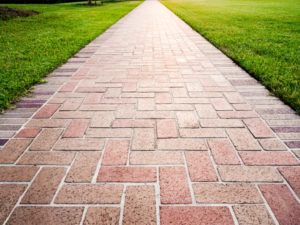
The answer isn’t as easy as you might think. For one, you will need to prove the existence of a dangerous condition. However, that’s not all. You will also need to provide evidence that the property owner knew or should have known of the hazards and failed to address them.
Meanwhile, there’s a caveat to the knowledge requirement. New Jersey law includes the word “reasonable” as far as recognizing defects and addressing them. In short, would a reasonable person have noticed the dangerous condition and still ignored the requirement for repair?
Considerations
That said, sidewalk accidents require special considerations. More than likely, you already know the causes of slip and fall accidents vary. For example, some fall downs strictly happen in cold temperatures. Obviously, you aren’t going to slip and fall on icy walkways in the summer months.
Meanwhile, determining liability for a slip and fall accident becomes a matter of investigation. When you meet with an experienced slip and fall accident attorney, you may learn that it’s a bit more complicated than you imagined.
Establishing Liability for Sidewalk Accidents
As you may know, slip and fall accidents represent premises liability claims. This means establishing property owners and their legal obligations. Some examples of who may be to blame for sidewalk accidents include:
- Public entities such as municipal governments
- Commercial property owners
- Commercial tenants
- Residential property owners
- Residential tenants
- Maintenance companies
While this list is far from exclusive, you need to understand the benefits of an experienced slip and fall attorney to handle your claim.
When You Fall on a Public Sidewalk
However, it’s not as easy as you might think. To begin with, claims against public entities involve the Tort Claim Act, found in NJSA 59:4-2.
Accordingly, if you fall on a public sidewalk, you’ll need to prove a few things. Among them is that the “public entity had actual or constructive notice of the dangerous condition.” Add to that the fact that the public entity must have “sufficient time prior to the injury to have taken measures to protect against the dangerous condition.”
Other Sidewalk Slip and Fall Accidents
Meanwhile, the intricacies in the law concerning slip and fall accidents don’t stop there. For example, you might want to file a claim against a commercial property owner if you fell on a walkway on their premises.
However, what do you know about the lease the commercial property owner holds with the tenants occupying the premises? It could be that it was actually up to the tenants to clear debris or other hazardous conditions.
What if you slip and fall on a sidewalk by a church or other house of worship? Does the use of the property possibly exempt the premises owner from liability? Once again, the issue remains something that an experienced premises liability attorney needs to review with you.
Contact Us
At the Law Offices of Anthony Carbone, we have over three decades of experience handling sidewalk slip and fall accident cases. We do not charge to meet with us, and our fee is ultimately based on recovering money damages on your behalf. Contact us at 201-733-2230 to schedule an appointment.